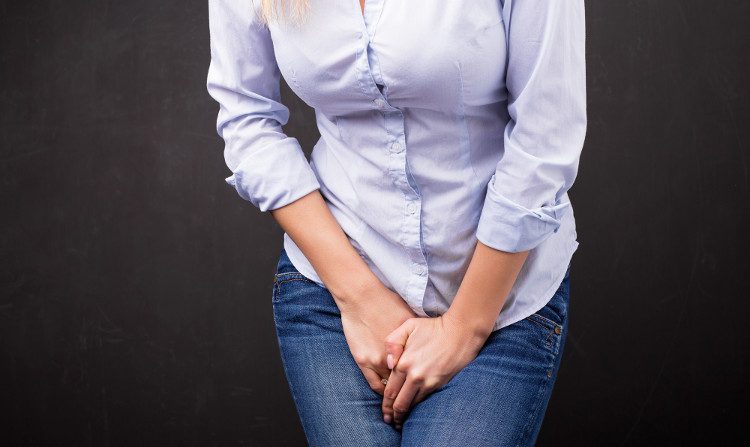Urination is a fundamental need for everyone and is very necessary. However, if you find yourself urinating frequently and continuously, it could be a sign of some serious health issues.
How Many Times a Day is Normal for Urination?
People who frequently urinate often wonder how many times a day is considered normal. According to the International Urological Association, an average adult urinates about 6 to 8 times every 24 hours. Therefore, urinating more than 8 times a day is considered frequent urination.
However, not everyone is the same, and there is no absolute number that applies to everyone. Many factors influence a person’s urination frequency, such as the type of beverages consumed. Caffeine and alcohol are bladder stimulants, which can cause you to urinate more frequently. The sensitivity of the bladder also plays a role. Some people may need to urinate after drinking very little water, while others do not.
What Could Frequent Urination Indicate?
Diabetes
Frequent urination can be an early symptom of Type 1 or Type 2 diabetes.

Frequent urination is also a warning sign for diabetes.
Pregnancy
In the early weeks of pregnancy, the expanding uterus can put pressure on the bladder, leading to increased urgency to urinate.
Prostate Issues
Problems with the prostate can cause pressure on the urethra. This can lead to bladder contractions, making you feel the need to urinate even with a small amount of urine.
Bladder Inflammation
This condition is diagnosed through bladder pain and pelvic discomfort. If you have bladder inflammation, you may also experience a higher frequency of urination than usual.

If you have bladder inflammation, you will also feel the urge to urinate more than normal.
Kidney Infection or Stones
Infections or stones in the kidneys can irritate the bladder, causing you to feel the need to urinate frequently. This is one of the explanations for frequent urination.
Medications
If you are taking medications, especially diuretics, then frequent urination may not be a concern!
Given these symptoms, do not be complacent. They could be signs of a serious medical condition.
Stroke and Neurological Disorders
Nerve damage affecting the bladder can lead to bladder dysfunction, resulting in increased and sudden urination.
Bladder Cancer
A growing tumor can compress or bleed into the bladder, leading to frequent urination throughout the day.
Non-Medical Causes
- Overactive Bladder (OAB): Known as a primary culprit for frequent urination across all ages. This occurs due to overactive bladder muscles, leading to frequent urination without a painful sensation. It is common among women who have given birth multiple times, as well as women in menopause due to hormonal changes.
- Pregnant Women: Hormones released by the placenta and the expanding uterus can compress the bladder, leading to increased urination.
- Age: Kidney function tends to decline with age.
- Diet and Lifestyle Habits: Drinking a lot of fluids, consuming soup in the evening, and using stimulants like alcohol and coffee can cause frequent nighttime urination.
- Use of Diuretics: Medications for high blood pressure, edema due to heart failure, kidney disease, and liver cirrhosis can lead to increased urination.
- Psychological Factors: Stress, anxiety, and insomnia can also contribute to frequent urination both day and night.
Symptoms of Frequent Urination
A person is considered to have frequent urination if the total urine output exceeds 2.5 liters in 24 hours or if they urinate many times in a day. Accompanying symptoms of frequent urination include:
Intermittent urination, feeling of incomplete emptying of the bladder each time, and sudden interruption of the urine stream.
Urgency: A feeling of discomfort in the bladder that compels you to urinate immediately.
Incontinence: Patients may experience loss of control over the urine stream, with urine leaking continuously or intermittently.
Urination Disorders: A sensation of pain or burning during or after urination.
Hematuria: There may be a small amount of blood (microscopic hematuria) or significant bleeding.
Nighttime urination may be accompanied by incontinence, such as bedwetting.
Dribbling: After urinating, urine may continue to drip or flow. You may feel a heavy sensation when starting to urinate.
Managing Frequent Urination

Avoid alcoholic beverages (wine, beer) as they can increase urination.
To alleviate frequent urination, patients should implement the following measures:
- You should limit fluid intake in the evening to reduce nighttime urination, and instead, distribute your fluid intake throughout the day.
- Avoid alcoholic beverages (wine, beer) as they are diuretics and will cause you to urinate more;
- Limit or reduce tea and coffee consumption as they act as diuretics. Additionally, avoiding these will help improve uncontrolled frequent urination;
- Limit acidic foods such as orange, lemon, grapefruit juice, tomatoes, starfruit, and pickled vegetables, as they can irritate the bladder, leading to more frequent urination;
- Avoid carbonated drinks as they can also easily irritate the bladder and cause frequent urination.
- Spicy and sweet foods should also be consumed in moderation as they can promote urination. Whenever you need medication for any condition, be sure to inform your physician to avoid diuretic medications. Most importantly, you need to be examined to detect and treat early the underlying causes of frequent urination;
- Finally, if frequent urination is due to a medical condition, you need to consult a specialist for appropriate treatment. Depending on the underlying cause, the doctor will suggest a suitable treatment plan, such as using anticholinergic medications to reduce bladder muscle spasms, thereby decreasing the frequency of urination or bladder control issues.
New Moon Invader Species Appears, Face Like Catfish
Bolivian Dolphin’s Strange Behavior Puzzles Scientists
Why Are There So Many People of Asian Descent Living in Russia?


















































